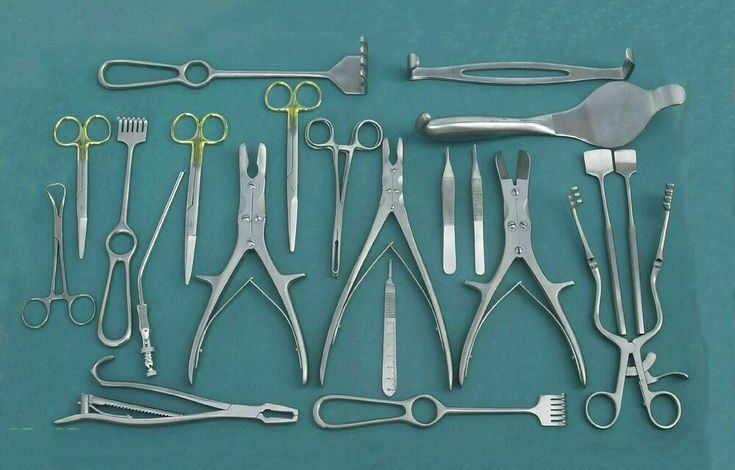Do Surgical Instrument Assistants Need Post-Secondary Education in Georgia?
Do Surgical Instrument Assistants Need Post-Secondary Education in Georgia?

If you’re considering a career as a surgical instrument assistant, you’ve chosen an essential and rewarding role in the healthcare industry. However, one question that often arises for those exploring this path in Georgia is, “do surgical instrument assistant need post secondary education in georgia?”
This blog will break down everything you need to know about the educational requirements for surgical instrument assistants in Georgia, their responsibilities, and the opportunities formal education can offer for career growth. Whether you’re just beginning your research or actively pursuing this career, we’ve got you covered.
The Role of a Surgical Instrument Assistant
Surgical instrument assistants, also referred to as surgical techs or instrument technicians, play a pivotal role in the smooth functioning of surgical procedures. Here’s a closer look at what they do:
Key Duties and Responsibilities:
- Sterilizing Instruments
Surgical instrument assistants ensure all tools and equipment are sterilized and ready for each procedure. This is critical for preventing infections and ensuring patient safety.
- Preparing Operating Rooms
They set up operating rooms with all necessary supplies, ensuring the surgical team has quick and easy access to tools during procedures.
- Assisting the Surgical Team
During surgeries, they hand instruments to surgeons, maintain sterile fields, and handle critical responsibilities like counting supplies to ensure nothing is left behind in the patient.
Why This Role is Crucial
Without surgical instrument assistants, surgical teams would lack the support they need to operate efficiently. These professionals are the unsung heroes who ensure procedures run seamlessly and maintain the highest standards of patient care.
Current Educational Requirements in Georgia
Now, let’s address the big question—do you need post-secondary education to work as a surgical instrument assistant in Georgia?
The Short Answer:
The requirements for becoming a surgical instrument assistant in Georgia vary depending on the healthcare facility and employer. While some smaller facilities may offer on-the-job training, most hospitals and surgical centers prefer or require some level of formal education.
Licensing and Certification
Though certification isn’t always mandatory, obtaining it can significantly enhance your employability. The Certified Surgical Technologist (CST) credential is highly regarded and often required by larger healthcare institutions in Georgia. This certification, issued by the National Board of Surgical Technology and Surgical Assisting (NBSTSA), usually requires completing a post-secondary program accredited by the Commission on Accreditation of Allied Health Education Programs (CAAHEP).
Variability Across Facilities
Smaller clinics or outpatient facilities may not require formal post-secondary education, but many still prefer candidates who hold a diploma or certificate from a recognized program. Larger hospitals, especially those in metropolitan areas like Atlanta, often list formal education and certification as standard prerequisites.
Post-Secondary Education Options in Georgia
For aspiring surgical instrument assistants, Georgia offers several post-secondary education programs tailored to this field. Here’s what you need to know when exploring your educational options:
Types of Programs Available
- Certificate Programs
- Duration: Typically 9–12 months
- Focused on the fundamentals of surgical technology and instrument care.
- Examples of schools offering this program include Chattahoochee Technical College and Gwinnett Technical College.
- Associate Degree in Surgical Technology
- Duration: Usually 2 years
- Includes in-depth training on surgical procedures, anatomy, and advanced sterilization techniques.
- Offered by institutions like Augusta Technical College and Central Georgia Technical College.
- Online/Hybrid Programs
- Flexible for students juggling work and study.
- Often include a hands-on clinical component.
What You’ll Learn
- Instrument sterilization techniques
- Surgical procedures and protocols
- Operating room safety standards
- Anatomy and physiology basics
- Team communication skills
Costs to Consider
Tuition varies depending on the program and institution, ranging from approximately $3,000 to $15,000 for certificate programs and up to $20,000 for associate degrees. Financial aid and scholarships may be available to offset some of these costs.
Advantages of Pursuing Post-Secondary Education
While not always mandatory, formal education as a surgical instrument assistant comes with undeniable benefits. Here’s why it’s worth considering:
1. Increased Employability
Employers prefer candidates with formal training and certifications, as this demonstrates competence and commitment to the field.
2. Enhanced Earning Potential
According to the Bureau of Labor Statistics (BLS), surgical technologists with certifications or degrees often earn higher wages compared to those without formal education.
3. Career Advancement Opportunities
With a solid educational foundation, you’ll be better positioned to pursue advanced roles like a surgical first assistant or move into healthcare management.
4. Confidence and Competence
Formal training immerses you in real-world scenarios, equipping you with the skills and confidence to excel in the operating room.
Testimonials
“I started with just a certificate program, and it completely transformed my career. Today, I’m working in one of Georgia’s largest hospitals, and I know my education made it possible.” – Karen D., Certified Surgical Technologist
Challenges and Opportunities
Pursuing post-secondary education in this field isn’t without its challenges, but the opportunities far outweigh them.
Common Challenges:
- Financial Investment: Tuition and certification fees can add up.
- Time Commitment: Balancing studies with work or family responsibilities can be challenging.
Opportunities Ahead:
- Specialization
Additional certifications in areas like cardiovascular or orthopedic surgery can open doors to specialized roles with higher pay.
- Networking
Education programs often include clinical rotations that allow you to build valuable connections in the healthcare industry.
Investing in Your Future as a Surgical Instrument Assistant
Surgical instrument assistants are vital to the success of any surgical team, and Georgia offers promising opportunities for those entering this rewarding career. While post-secondary education isn’t always required, it can be a game-changer for your career prospects, equipping you with the skills and qualifications healthcare employers value most.
If you’re serious about building a successful career in this field, exploring education programs and certifications is the logical next step. Whether you choose a certificate program or an associate degree, your investment in education will pay dividends in terms of employability, salary, and job satisfaction.
Have questions about this career path or want to share your experiences? Leave a comment below, and let’s continue the conversation!



